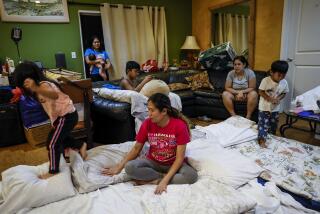Mugabe, rival reject calls for unity
Prospects for ending the political crisis in Zimbabwe deteriorated Tuesday when President Robert Mugabe and the country’s main opposition party rejected calls by African leaders to form a power-sharing government following the recent disputed elections.
The dilemma of what to do with Zimbabwe and its defiant 84-year-old president veered from backroom diplomacy to public recriminations during the African Union summit in Egypt’s Red Sea resort Sharm el Sheik. Leaders of nations in the 53-member union passed a resolution pressing the opposition and Mugabe to compromise, but amid cameras in crowded hallways, passions rose among the president’s entourage.
The president’s spokesman, George Charamba, told reporters that Zimbabwe would not accept a unity government similar to one put in place in Kenya this year after questionable elections. He spurned the notion that Mugabe would step aside over threats of broader United Nations sanctions because of a campaign of violence and intimidation that led opposition candidate Morgan Tsvangirai to withdraw from the presidential runoff election. Before the election Friday, Tsvangirai took refuge in the Dutch Embassy in Harare.
“Kenya is Kenya. Zimbabwe is Zimbabwe. We have our own history of evolving dialogue and resolving political impasses the Zimbabwean way,” Charamba said. “The Zimbabwean way, not the Kenyan way. Not at all.
“The way out is a way defined by the Zimbabwe people, free from outside interference, and that is exactly what will resolve the matter.”
When asked about Western criticism of the election, much of it coming from the United States and Britain, the spokesman said, “They can go hang a thousand times, they have no basis, they have no claim on Zimbabwe politics at all.”
Tsvangirai’s opposition Movement for Democratic Change also appeared to dismiss the idea of a power-sharing solution. A statement by the group released in Zimbabwe’s capital, Harare, said, “There are no talks or discussions taking place between the two parties and most importantly, there is no agreement in the offing.”
The MDC’s deputy leader, Tendai Biti, who was jailed during the campaign and later released, said that the violence-tainted runoff election “totally and completely exterminated any prospects of a negotiated settlement.”
The resolution by the African Union came hours after the comments by Charamba and Biti. It calls for talks on the “creation of a government of national unity.”
The group said it was “deeply concerned” and urged that the crisis be mediated by the Southern African Development Community, which found that the elections that brought Mugabe to his sixth term were undemocratic and “did not represent the will of the people of Zimbabwe.”
The opposition won none of its key demands from the African Union summit. Its representatives on the sidelines had lobbied delegates to declare that the first round of the Zimbabwean presidential election, held March 29, when Tsvangirai outpolled Mugabe, should be the basis for talks on a government of national unity. The MDC also wanted the African Union to reject Friday’s second-round election as illegitimate and to appoint an envoy to oversee negotiations toward a unified administration.
The resolution addressed neither request.
Although the MDC did not achieve its goals, it won significant support among African nations, according to opposition sources in Harare. Nigeria, Senegal, Botswana and Kenya saw Friday’s election as lacking legitimacy and were supportive of the MDC’s position, the sources said.
Still, the African Union was divided on how tough a line to take with Mugabe, who has ruled Zimbabwe since it gained independence from Britain in 1980 and is revered as a post-colonial hero by many on the continent.
A number of members of the union, including Egypt and Libya, also have been criticized over the years by human rights groups and Western governments for political oppression, torture and jailing opposition figures.
The union found itself between growing pressure from Washington and London for tougher U.N. sanctions against Zimbabwe and a desire to project the image that African nations are capable of resolving disputes on their continent.
These frictions were exacerbated by Mugabe, the nattily dressed, unapologetic president accused of stealing an election.
Some leaders, such as Kenya’s Prime Minister Raila Odinga, wanted harsh union action against Mugabe. “They should suspend him and send peace forces to Zimbabwe to ensure free and fair elections,” Odinga said from Nairobi, his country’s capital.
But President Omar Bongo of Gabon said the union must respect Zimbabwe’s election results. He was quoted by Agence France-Presse as saying that Mugabe “was elected, he took an oath, and he is here with us, so he is president and we cannot ask him more.”
The day was tense, and, at one point, television networks showed Mugabe walking through the hall of the Sharm el Sheik convention center before cameras and microphones closed in, forcing his bodyguards to push reporters away and secure the leader in a locked room.
--
jeffrey.fleishman @latimes.com
A Times staff writer in Harare contributed to this report.
More to Read
Start your day right
Sign up for Essential California for news, features and recommendations from the L.A. Times and beyond in your inbox six days a week.
You may occasionally receive promotional content from the Los Angeles Times.







